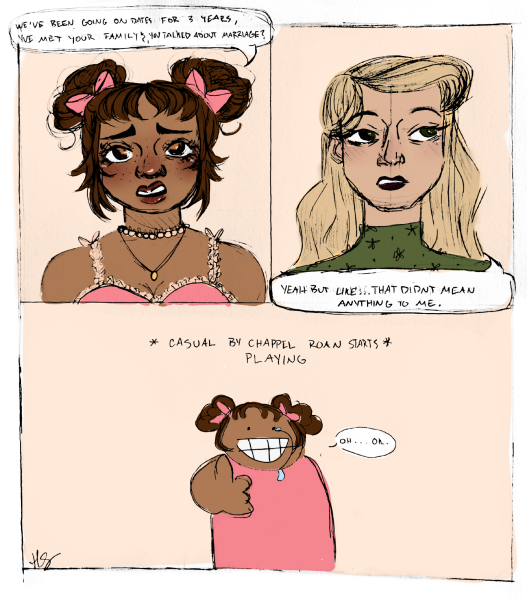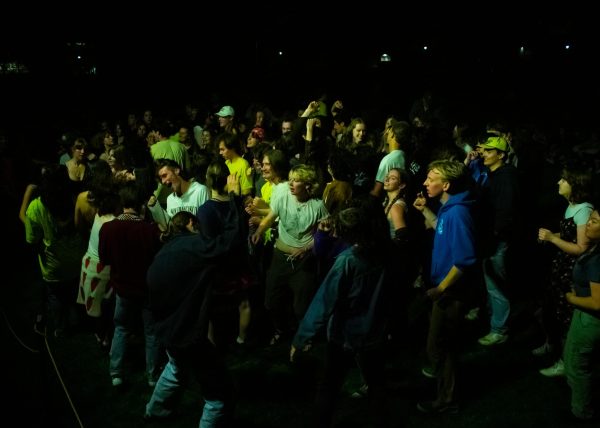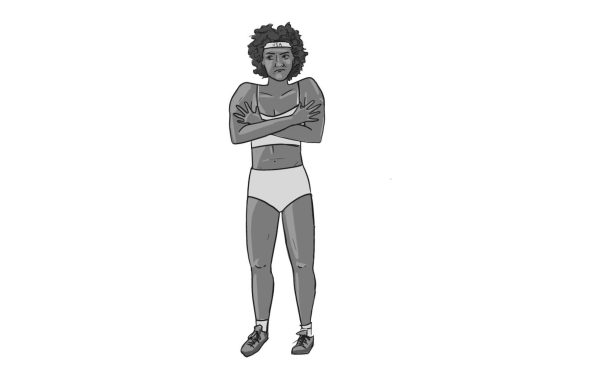OP-ED: Why we should care about the Hong Kong protests at Whitman
December 5, 2019
Since June, pro-democracy protests have been ongoing in Hong Kong. Everyone here has been overwhelmingly supportive, from students to faculty to Walla Walla residents. But I’ve seen no lectures or posters about Hong Kong at Whitman so far. Most people don’t follow the protest news despite being sympathetic. So why should we care about the protests at Whitman? As a student from Hong Kong, I’ll explain why.
In 1997, Hong Kong was returned to China, ending 156 years of British colonial rule. Hong Kong became a Special Administrative Region (SAR) to enjoy its own rights and government separate from China under the “One Country, Two Systems” arrangement. But it gradually became clear that China sought to directly control Hong Kong. The final straw was the extradition bill in March, drafted after a Hongkonger murdered his girlfriend in Taiwan. It declared that Hong Kong fugitives would be trialed and imprisoned in China. To Hongkongers, once someone was sent to the mainland, they’d never return. Hongkongers from all backgrounds rallied against the bill, then the protests spiraled into avenging fifteen years of neglectful governance.
Hongkongers aren’t fighting for independence — many protesters dismiss the idea. The protesters aren’t propping up capitalism; they just believe universal suffrage, ending police brutality and free and fair elections are more important. Nor is the CIA backing them. Some protesters’ conduct is completely unacceptable and undemocratic: physically attacking anyone who confronts them, bomb making and nearly burning an old man alive. But every mass movement attracts thugs, and a single action never defines an entire group. Most protesters are peaceful, compared to the few hundred “radicals” who protest violently. Most of these radicals are frightened students like us, not career thugs.
Hong Kong has had serious problems for 15 years. The city is run by an oligarchy of tycoons who control real estate, giving government officials a cut of the profits. Hong Kong has been described as an unregulated “capitalist playground”, resulting in severe economic inequality and the city’s poorest living in cage homes. Housing costs are so high that people have to work for decades to buy a small apartment. Pro-Beijing conservatives have ruled Hong Kong since 1997; any pro-democrats never won the chief executive position due to Chinese intervention in the elections. Wealthy Chinese settling in Hong Kong get instant jobs and housing despite being foreigners as locals struggle to get by. Tax money was spent on constructing an expensive bridge to China and a mainland-centric museum. A government is supposed to represent and look after its people; the Hong Kong government has not. By June 2019, people had enough and millions protested.
The government responded by not negotiating and deploying the Hong Kong Police Force. The police were our heroes previously, stars of popular movies and dramas. In past protests, cops gave water to protesters choking on tear gas. But now, young and old alike face rubber bullets and water cannons. Tear gas is fired into residential neighborhoods and subway stations full of people. Riot police beat injured protesters in hospitals and deny paramedics access to wounded protesters. The police even work with local triad gangsters and armed pro-government militias to beat up protesters. To defend themselves, desperate students fight back with Molotovs and sticks, and are labeled rioters. Some protesters were imprisoned in a police detention center where they were beaten and sexually assaulted. This Monday, an unarmed protester was shot at point-blank range for no reason. On Tuesday, the police besieged university campuses, beating and tear gassing students and even faculty who tried to calm both sides down. Now they are banning the annual LGBT parade. A Chinese military crackdown is unneeded if Hong Kong’s already a police state.
The Chinese Communist Party (CCP) has turned Chinese against Chinese by encouraging mainlanders to demonize Hongkongers as “cockroaches” and separatists. The CCP is a technocratic, communist-in-name-only totalitarian dictatorship that imposes apartheid on Uighurs and Tibetans. They seek to violate their own SARs’ agreements and end Taiwan’s existence as a democratic country. They’ve even sent People’s Liberation Army (PLA) operatives to dress in Hong Kong Police Force clothing and suppress the protests. To many protesters, the CCP is the problem, not fellow Chinese.
Why should we care? As students, we’d be outraged if our campus was stormed by police and our friends and faculty beaten. In a divided America, Hong Kong’s a bipartisan cause – Marco Rubio and Alexandra Ocasio-Cortez even condemned China together! The protesters only wave American flags because America is the only country capable of challenging China, even though American imperialism persists. Standing against tyranny is universally respected worldwide, and Hong Kong is no different.
When I came to Whitman and later became a U.S. permanent resident, I was overjoyed to embrace the American identity and abandon Hong Kong. Since June, I wear protest T-shirts daily and feel proud to call myself not just an American, but a Hongkonger. Even my parents now feel empowered by the protests – that the world knows where we are and what we stand for!
So how can we help? Don’t march around campus; it does little. Instead, ask your senators to co-sponsor the Hong Kong Human Rights and Democracy Act. Perhaps a Hong Kong protest discussion forum can be set up at Whitman. Follow and share protest news on social media from Radio Television Hong Kong and Hong Kong Free Press. Wear black clothing in solidarity. Make a Lennon Wall of Post-It notes. Sign petitions. Spread awareness. Show that Whitman stands with Hong Kong!









Xiao Chang • Dec 12, 2019 at 6:35 pm
Mr. Wong absolutely nailed it: the Whitman community needs to care about the Hong Kong protest—because then they will see how violent, blind, tyrannical and racist the movement and its supporters have become.
The existential crisis of Hong Kong is real and understandable, but violent and bigotry are not the answer. One would expect the democratic citizens would have the political acumen and intelligence to figure that out.
Nick Collard • Dec 8, 2019 at 7:30 pm
They really let ya’ll post whatever misleading sinophobic nonsense you want on here ,don’t they? Disappointing. Not only do you erroneously claim support from students and faculty, but you’re actively spreading misinformation propping up the U.S. empire. These protests are colonialist and reactionary. Your post pays no attention to the class composition of the protests, which differentiates them from actual left-wing and working class movements happening across the world. They are demonstrably backed (financially and strategically) by the U.S. state and protesters have killed and injured more people than the police have. The special treatment Hong Kong enjoys as a remnant of the British Empire must come to a end, and that won’t change no matter how tactfully you weaponize political language such as “democracy” and “human rights” against the Chinese state. This post is incredibly negligent and completely ignores the hegemonic structures of oppression built by the U.S. and it’s allies in the ‘West’ that plague the globe. This is just an especially nauseating bunch of liberal crap, I just can’t. Wire editors…. Really?